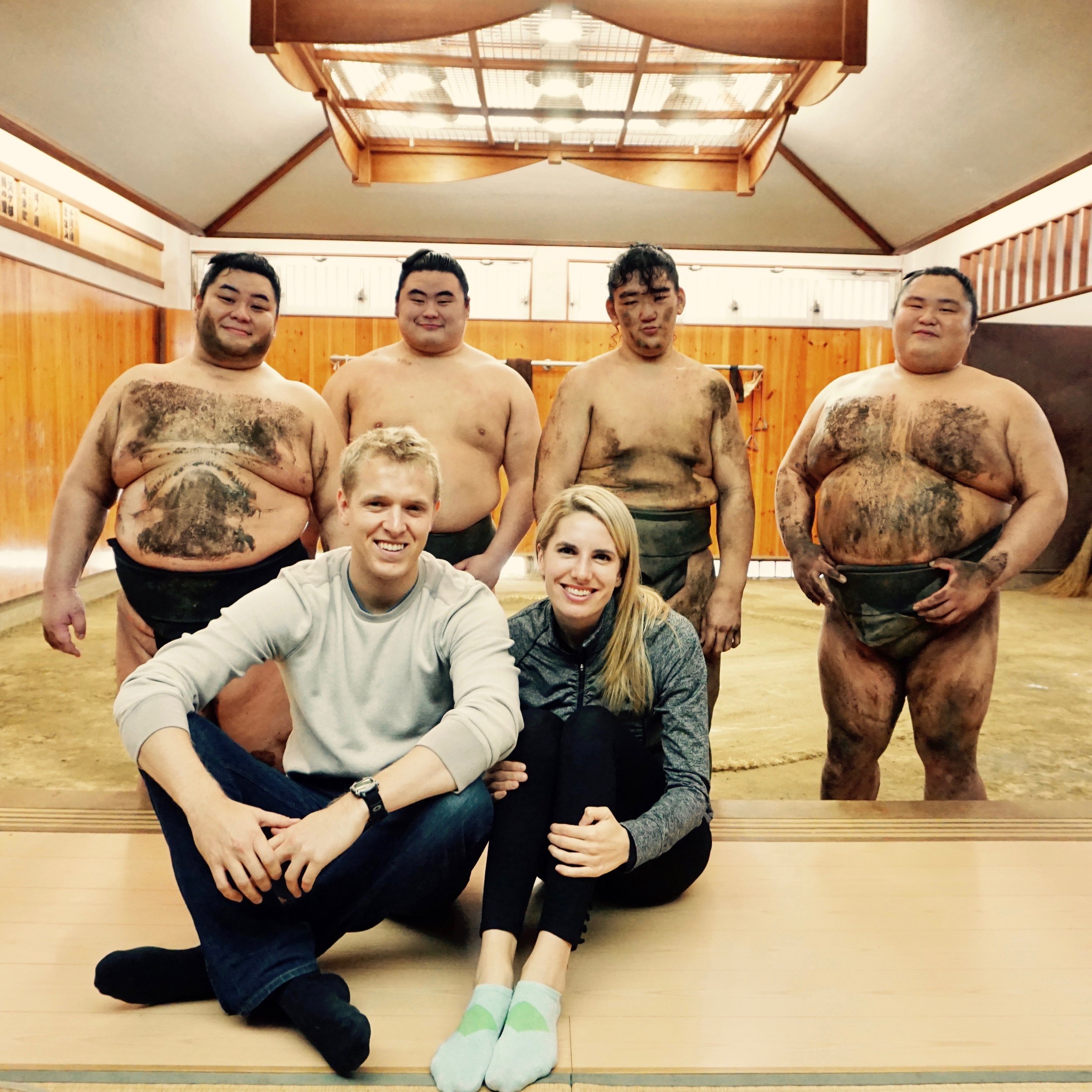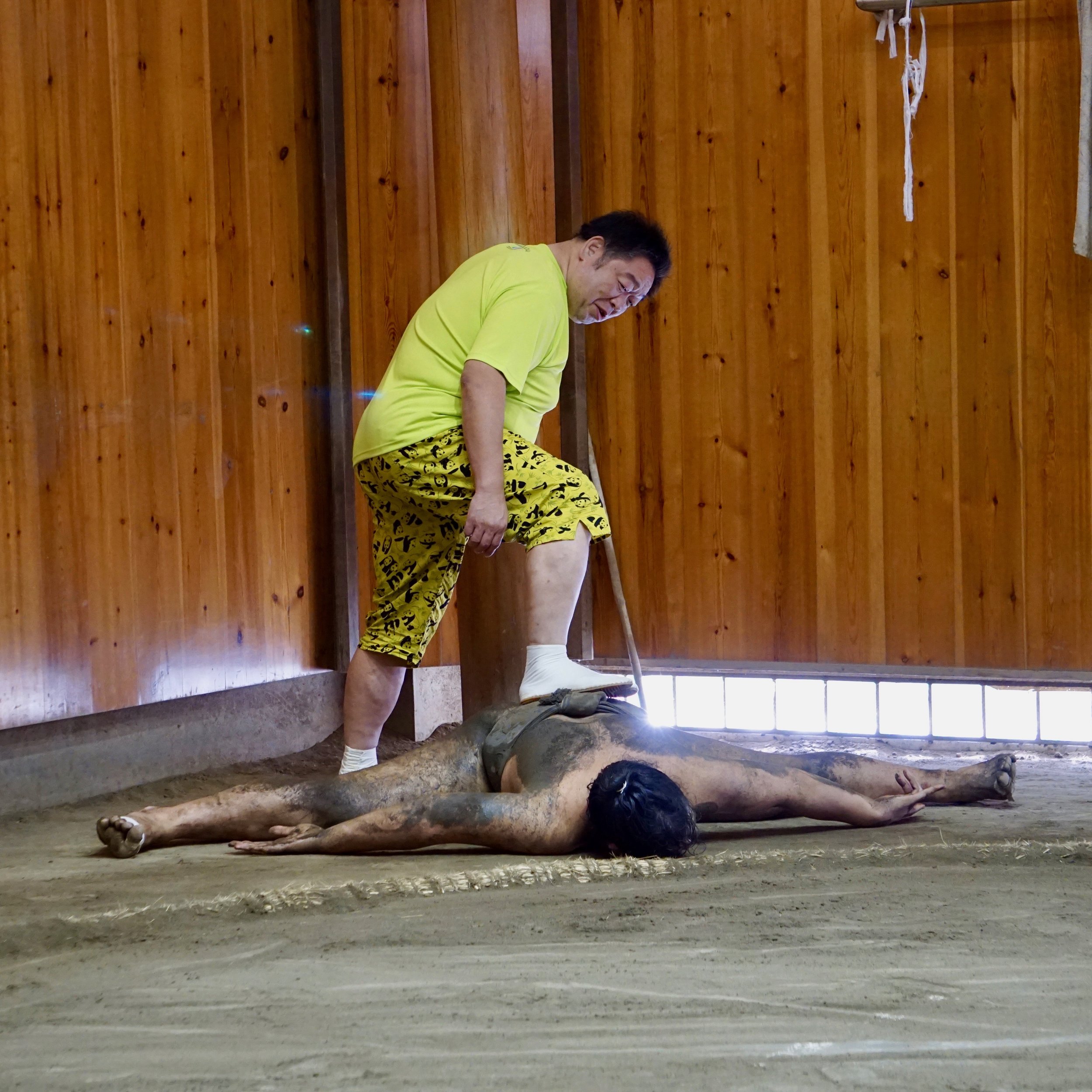There are only certain months of the year where sumo wrestling tournaments take place in Japan. We did not visit during one of those months. So we watched a 2-hour sumo wrestling practice one morning at a beya (or stable). I can’t say I knew much about sumo prior, but it was fascinating to observe them work out. Hands-down our top highlight from Tokyo (outside of seeing friends).
Here are some interesting facts we learned about sumo:
- There is NO weight class differentiation in sumo (which is why gaining weight is often an advantage in the sport)
- Sumo wrestlers generally die 10 years younger than the average male
- Apparently Mongolians and Hawaiians make great sumo wrestlers
- Wrestlers must wear traditional Japanese clothing (all the time)
- Sumo wrestlers are forbidden from driving by the National Sumo organization.
- The best sumo wrestlers can make $5 million USD / year. The lowest ranking sumo make nothing according to our guide.
- Strong knees are REALLY important. If you get a knee injury, it could mean the end of your sumo career
- You have to be invited to join a beya. There is no application process. They find you.
- You have to be at least 15 years old to join a beya. After age 30, sumo wrestlers generally no longer compete (as it can become dangerous)
- At the beya we were at, there was a 16-year old. He was by far the smallest (weight-wise, that is), relative to those he was practicing against. He got his butt kicked, but I was mesmerized by how hard he worked.
- There is a real spiritual/religious aspect to sumo. Sumo wrestlers throw salt on the ring to purify it
- Women are not allowed in the ring. Not cool.
- There are 47 beyas in Tokyo
- We could go on, but we won’t.
Sumo wrestlers are tough, strong, and incredibly disciplined. Watching the smallest one fight as hard as he did was a total reminder that there will always be someone that is stronger or better, but that you only get better by pushing yourself.







